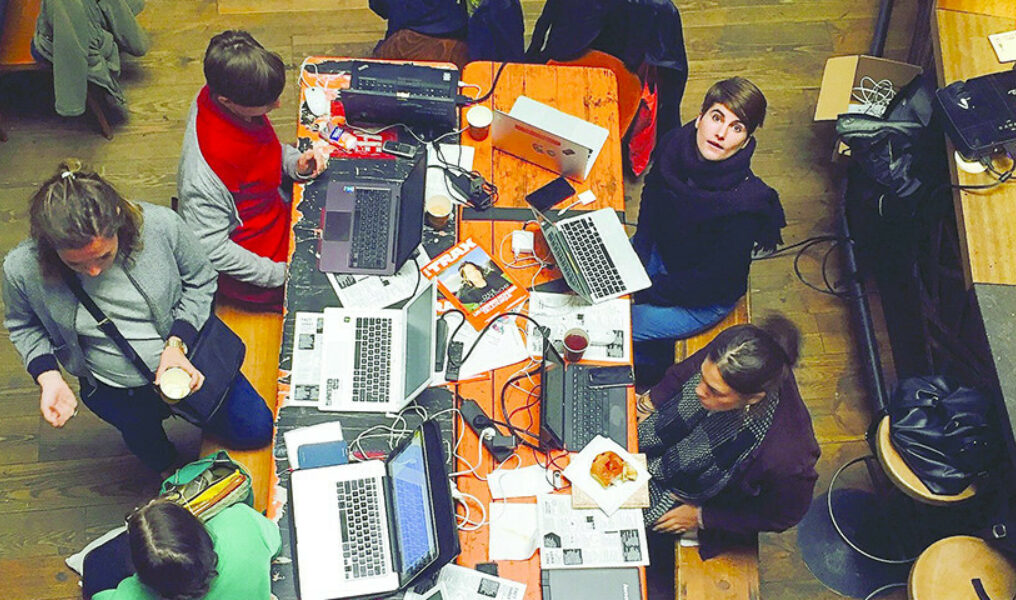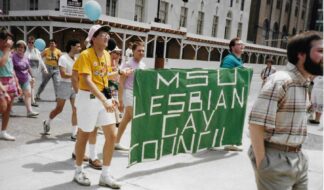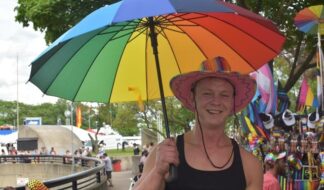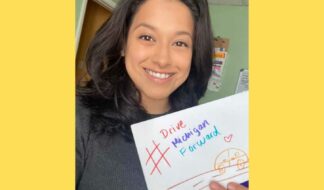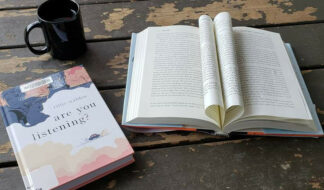The leather-bound encyclopedias found on library shelves can be a great resource, but type a quick query into a search engine and Wikipedia's likely to have the same answer, just at one's fingertips. A 2005 study done by the journal Nature even found that the user-updated free online encyclopedia's results tended to have just as much accuracy as Britannica. But as accurate as the site generally is, the representation of its editors isn't; a fact not unnoticed by the founder's of the Art+Feminism campaign who report that fewer than 10 percent of Wikipedia's editors are women.
"Art+Feminism is a campaign improving coverage of cis and transgender women, non-binary folks, feminism and the arts on Wikipedia," campaign organizers wrote. "From coffee shops and community centers to the largest museums and universities in the world, Art+Feminism is a do-it-yourself and do-it-with-others campaign teaching people of all gender identities and expressions to edit Wikipedia."
Using events called edit-a-thons, attendees from all walks of life are taught how to properly source information, cite it and input it on Wikipedia articles. The collective hosts events across the world, and this coming March 30, will host one in Windsor, Ontario, at Hackforge and at the Shapiro Undergraduate Library at the University of Michigan on April 2. BTL caught up with members of the collective Si√¢n Evans, Jacqueline Mabey, McKensie Mack, Michael Mandiberg and Melissa Tamani in advance of the events to chat about Art+Feminism's beginnings, how events work and how to participate.
Having started A+F only a few years ago, are you surprised by how quickly edit-a-thons have been adopted around the world?
Yes! We often joke that when we held our first event at Eyebeam, we thought we'd have to beg 15 of our closest friends to show up and edit.
How did Art+Feminism come to be?
The event was the result of a series of conversations between a number of artists, educators and librarians about the dearth of content about women and art on what is increasingly the most popular online research tool.
In October 2013, Si√¢n Evans and Jacqueline Mabey discussed organizing an event around art and feminism, similar to the Ada Lovelace Day edit-a-thons; Evans wanted to do something concrete as the coordinator of the Women and Art Special Interest group for Art Libraries Society of North America, a professional organizations of art librarians. Mabey mentioned this to Michael Mandiberg, because of their use of Wikipedia in teaching. Mandiberg had actually had a similar conversation earlier that day with curator, Laurel Ptak. At the time, Ptak was doing research around cyberfeminism as a fellow at Eyebeam, a center for art and technology in New York City. Mandiberg had encouraged her to hold an edit-a-thon focused on art, technology, and feminism.
This project also came on the heels of a very public debate about structural sexism in Wikipedia. The debate began when writer Amanda Filipacchi wrote a New York Times op-ed on a problematic editorial practice being implemented by a number of Wikipedia editors: women were being removed from the "American Novelists" category and moved into a subcategory for "American Women Novelists." Filipacchi's piece generated a maelstrom of writing on Facebook and other social media platforms, speaking out against this subcategorization. At the same time, Wikipedians were having an entirely separate conversation on Wikipedia about whether to change this practice of subcategorization. These conversations were worlds apart. We wanted to help give people the training to shape the conversation directly on Wikipedia.
As important as it is for people to realize that 10 percent of women editing on Wikipedia are women, it's arguably more striking that their edits are the ones most likely to be reversed. What are some of your techniques to make sure that the edits that are submitted by edit-a-thon participants are longlasting?
These two issues are not unrelated. You're right that women's edits are more likely to be deleted: according to a 2011 study by Lam et al, of the "user's first seven edits, the average reverted edit percentage for females is significantly higher than that for males." This means that a much higher percentage of women are having their contributions negated by other editors which is an extremely disheartening experience and contributes to their continuing lack of presence.
It's important to remember that Wikipedia is both an encyclopedia and a community. So, part of our work is not just improving the content of the encyclopedia but also equity within the community. We work with local Wikipedia chapters and we have a Slack channel where we convene with organizers on issues that come up when editing on Wikipedia. We also invest heavily in our training materials and encourage editors to start small and work their way up to things like article creation.
The existing training videos provided by Art+Feminism are very comprehensive. What was the process like for creating those tools?
All of our trainings materials have been built collaboratively and iteratively over the past six years. It's also important to note that we were building upon lots of lesson plans and training documentation that already existing within in the community. Last year, we hired an instructional designer (Susana Aho) who helped remix some of our training materials.
Can anybody participate in an edit-a-thon?
Yes! Absolutely. Although it is important to us that anyone who does attend adheres to our Brave Space Policy. [It can be found online at Wikipedia.org.]
How do you hope that enhancing the visibility of women and of nonbinary artists will impact the art world?
Here we would like to quote the great Okwui Enwezor, who passed away recently.
"… people oftentimes ask me, 'Can art change the world?' I say, 'I don't know if art can change the world, but by trying to expand the table of content of our field, we can have an effect.'
Providing visibility to the lives and work of women and non-binary gender people not only introduces their views and perspectives, but also introduces and values topics and knowledge that were relegated in the construction of art narratives.
